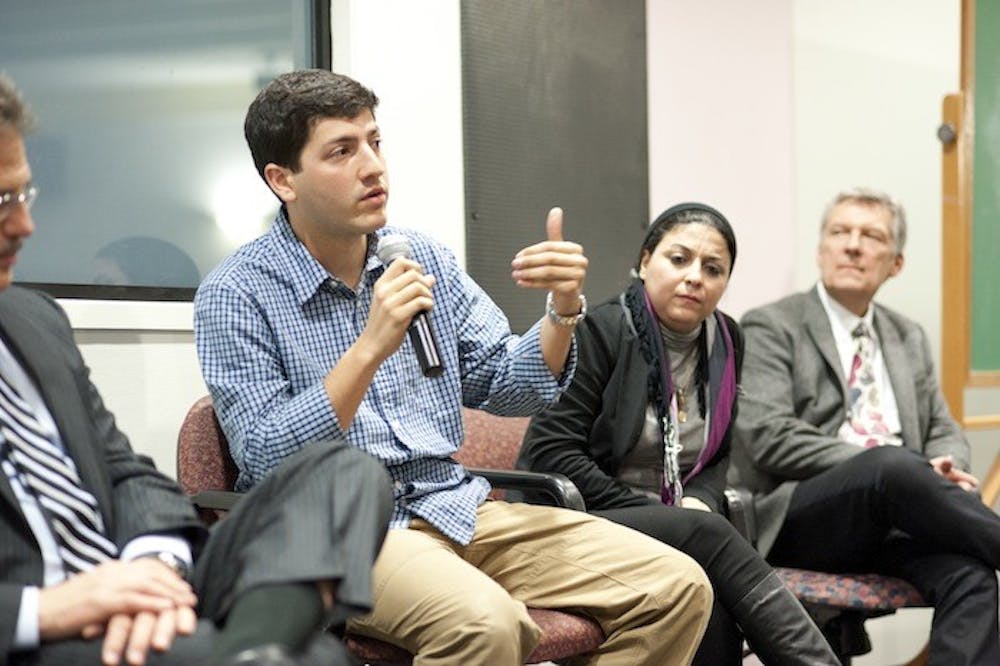Revolution can start with the smallest voice simmering up from the subjugated masses. Or at least that is what the new documentary by Ben Moses “A Whisper to a Roar” would like you to think.
The premiere of the documentary at AU on Jan. 29 was preceded by a panel of people featured in the film and a vibrant audience Q&A with some of the cast and filmmakers. The film chronicled the various points of conflict when democracy movements begin to arise in developing countries.
Filmmakers went to Ukraine, Zimbabwe, Egypt, Venezuela and Malaysia. The film included interviews with luminaries such as the daughter of Rhodesian president Graham Todd, Nobel Peace Prize winner Mohamed ElBaradei and Zimbabwe political activist Judith Todd.
“A Whisper to a Roar” tells the story of what happens when peoples from different countries find themselves at odds with dictators who use political promises for political currency. From Robert Mugabe promising political change while using violence to keep his opposition in check, to an attempted assassination of then presidential candidate Viktor Yushchenko in Ukraine, the film shows how strong democratic ideals propel these revolutionaries forward.
The panel discussion that preceded the film was moderated by co-director for the Center of Democracy and Election Management Robert Pastor featuring Stanford University’s Larry Diamond, Egyptian activist Esraa Abdel Fattah, Venezuelan student leader Roberto Patino and director Ben Moses. All the panel members described what it was like to work on the film and their own activism in their individual countries.
Moses said that during the filming of the documentary, various similarities came up while shooting in the different countries.
“When we went into all of these countries, we began to see a picture ... it was important for me to say what I learned and I only told the story that I learned,” he said.
Diamond (whose writings on political revolutions drove a lot of the movie) said that the film reflects a far more macro sense of today’s revolutionary thought.
“The world is in a volatile place,” Diamond said.
Moses admitted that documentary film is a tough medium to work with since there can be bias attributed to the field.
“First fact about documentary filmmaking is there is no documentary filmmaking,” Moses said. “They’re all propaganda films.”
But Moses said that doing as much research as possible on your subjects can clear up bias.
Both Patino and Fattah said that the younger generation should carry the mantle that older generations passed down.
dkahen-kashi@theeagleonline.com





